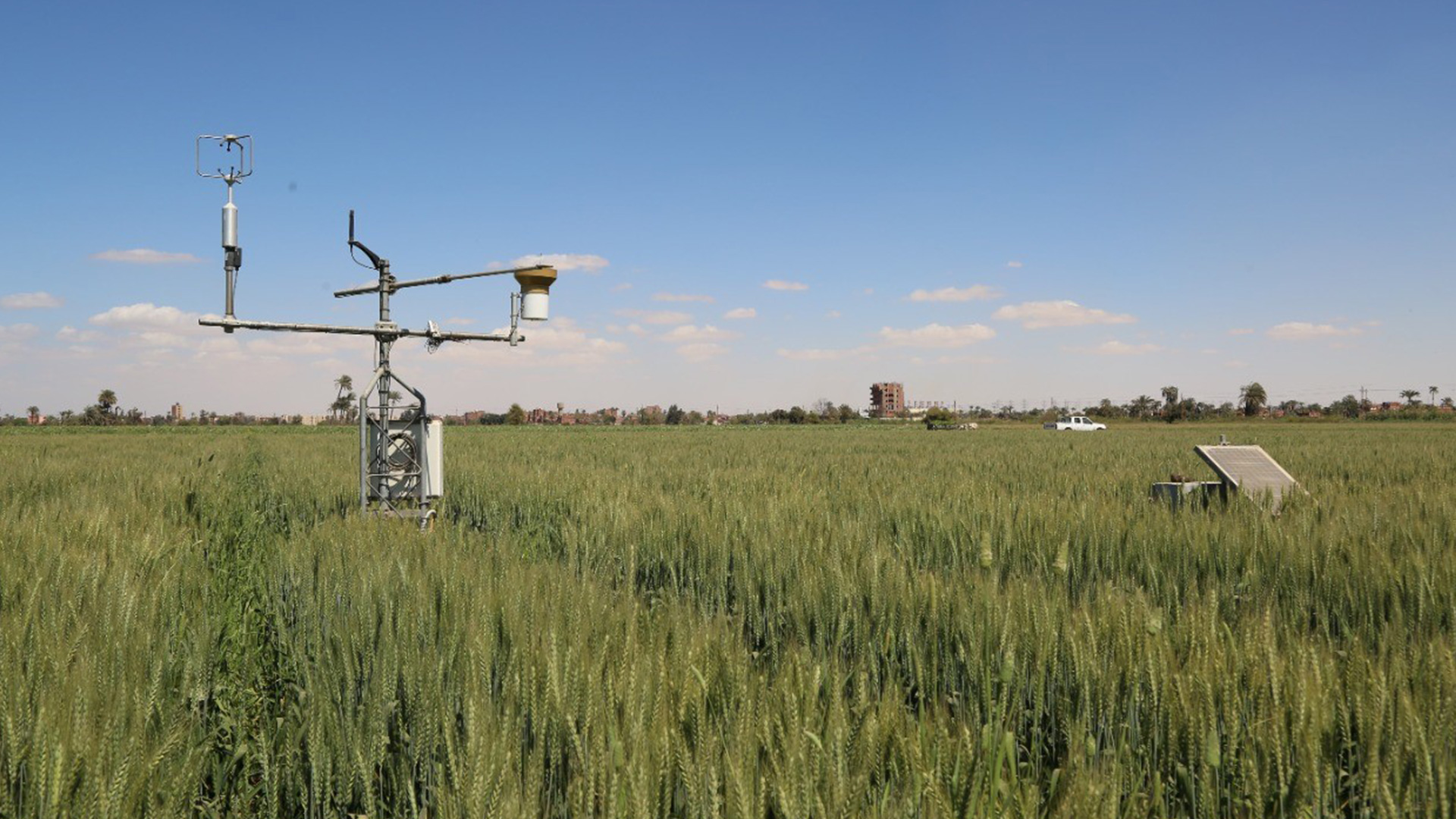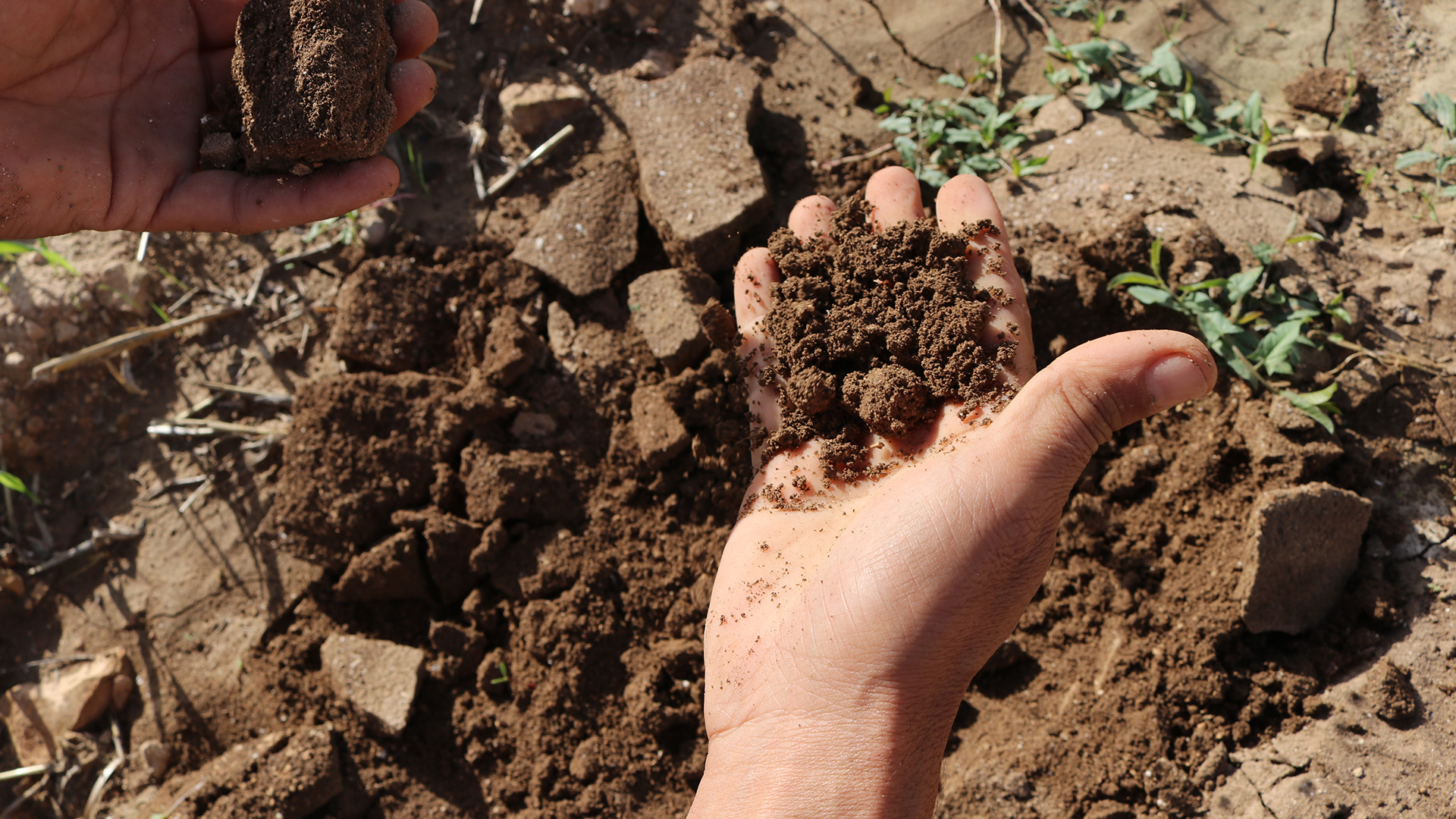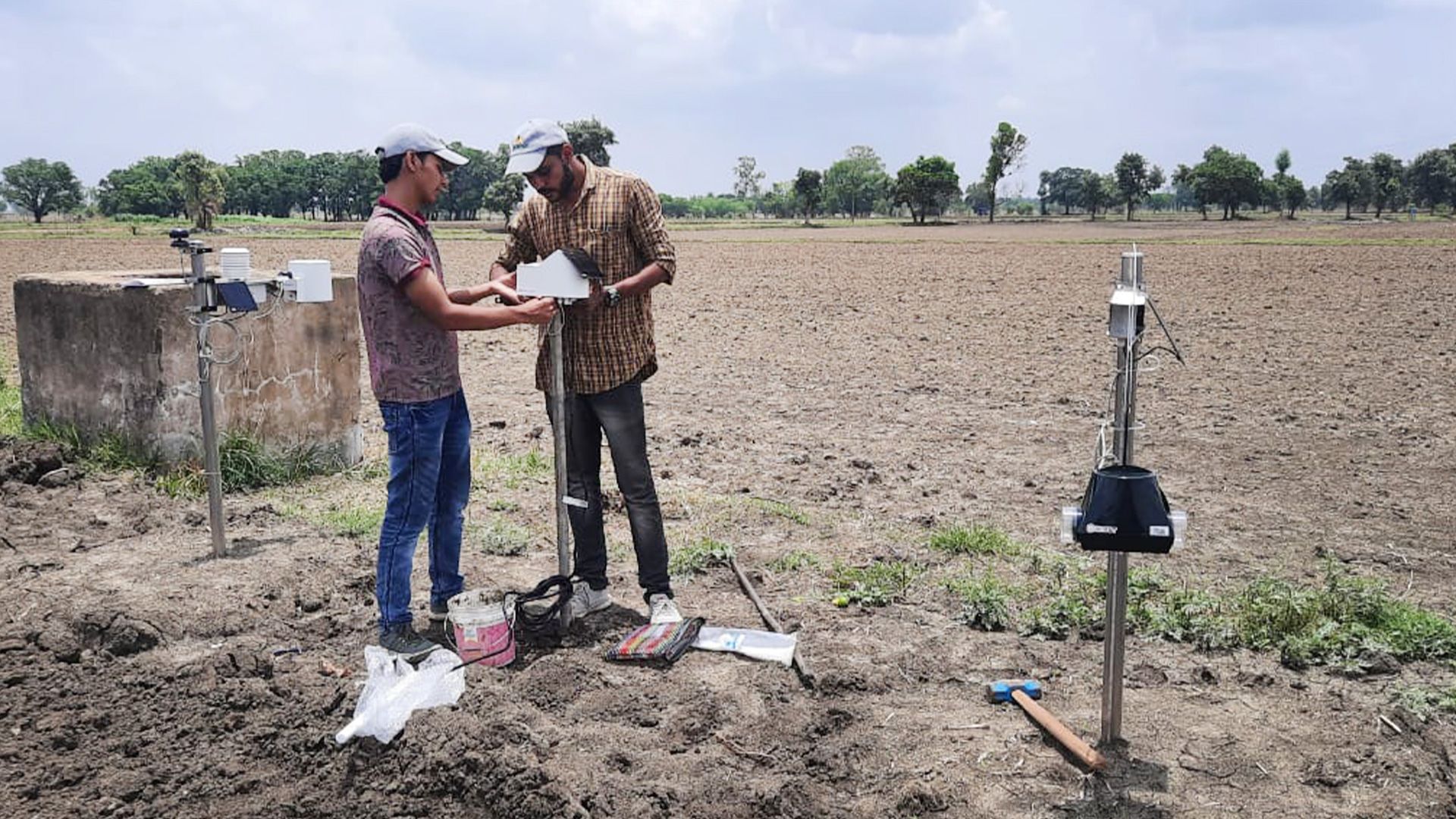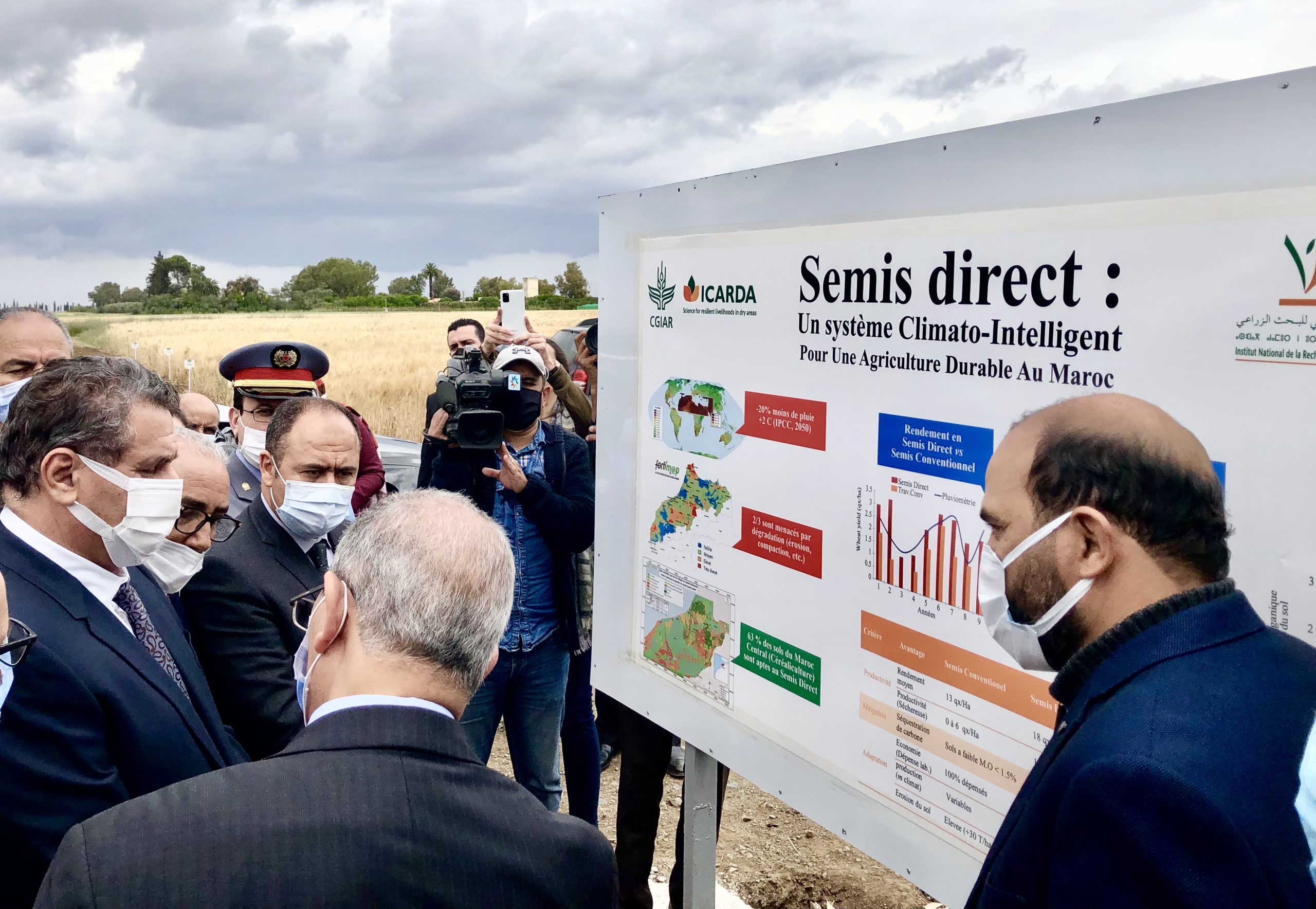

No Posts Found.
ICARDA’s SWA team, led by Dr. Vinay Nangia, and the Food and Agriculture Organization of the United Nations (FAO), produced a popular six-part webinar series on state-of-the-art evapotranspiration (ET) measurement methods, which attracted over 1,700 international and regional participants.
Given climate impacts of heat and water scarcity, accurately measuring the ET of crops is a vital aspect of crop planning and agronomy. The series coincided with a new regional network, initiated by ICARDA and FAO, to improve ET field measurements and enhance adaptation to climate change and freshwater scarcity in five countries: Egypt, Jordan, Lebanon, Morocco, and Tunisia.

Dr. Boubaker Dhehibi from ICARDA’s Social, Economy, and Policy Research (SEPR) team coauthored an important research paper on water, policy, and productivity in Egyptian agriculture, funded by the Economic Research Service, United States Department of Agriculture. Findings reveal that expanding water resources is just one way to increase or maintain agricultural output when water scarcity restricts production, and that investments in agri-research almost always improve productivity. The paper clearly demonstrates that technological innovations and efficiency gains through agri-research have contributed more to agricultural growth than the expansion of irrigated areas or increased water use.

Water scientists, agronomists, entomologists, GIS analysts, breeders, and economists helped establish ICARDA’s first precision farming one-stop shop at ICARDA’s research station in Amlaha, India. The three-year project, funded by the Indian State Government of Madhya Pradesh and led by ICARDA’s Dr. Vinay Nangia, spans irrigated and rainfed agro-ecologies and focuses on economically important crops such as cotton, wheat, and soybean. Data related to farmers’ fields will be channeled to Amlaha’s control room, analyzed, and delivered by SMS back to farmers to advise on irrigation and inputs. The tools chosen target low-income farmers who only adopt new technology if it is low-cost, low-maintenance, robust, easy-to-scale, stable, consistent, and simple to manage and operate.

Morocco’s ground-breaking Green Generation Strategy (2020-2030) announced in February sets aside a remarkable 1.5 million hectares for Conservation Agriculture (CA). CA is proven by clear scientific evidence as an agronomy approach that reduces erosion and captures carbon dioxide. CA involves no (or minimal) tillage after harvest, permanent soil cover to lock in moisture and reduce evapotranspiration, and crop diversification. Widely promoted by ICARDA, In 2021 the World Bank worked with ICARDA’s SWA Team and the Institut National de la Recherche Agronomique (INRA-Morocco) to develop a roadmap and investment plan based on the new Morocco strategy. This is also closely linked to EiA efforts in the country.

ICARDA efforts to diversify Morocco’s standard lentil production system using quinoa, led by Dr. Mina Devkota, caught the attention of the World Overview of Conservation Approaches and Technologies (WOCAT) which included the innovation in its compendium of good land practices. ICARDA uses diversified cropping systems to rehabilitate soils across Morocco, India, Nepal and Uzbekistan, which have been degraded by decades of intensive tillage, overgrazing and damaging industrial farming practices.
